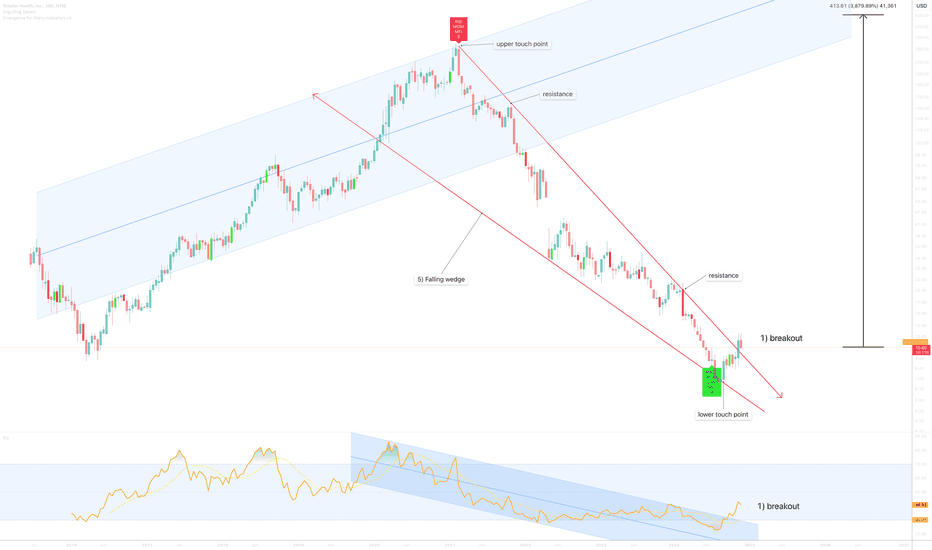4000% return with Teladoc Health, Inc
- January 7, 2025
- Category: Blockchain

** long term investment **
On the above 10 day chart price action has corrected 97% since February 2021. A number of reasons now exist to be bullish, they include:
1) Price action and RSI resistance breakouts. Almost 4 years of resistance.
2) Regular positive divergence. Multiple oscillators print positive divergence over a 90 day period.
3) No stock splits.
4) 15% short interest. Who does that after a 97% correction?
5) The falling wedge forecast as measured from top and lower touch points calls for a macro move to the $400 area.
Is it possible price action corrects further after 97%? Sure, sellers love it.
Is it probable? No
Ww
Type: Investment
Risk: you decide
Timeframe for long: Ask me after it pops up 100%, you always do.
Return: 2000-4000%
Stop loss: will say elsewhere
On the above 10 day chart price action has corrected 97% since February 2021. A number of reasons now exist to be bullish, they include:
1) Price action and RSI resistance breakouts. Almost 4 years of resistance.
2) Regular positive divergence. Multiple oscillators print positive divergence over a 90 day period.
3) No stock splits.
4) 15% short interest. Who does that after a 97% correction?
5) The falling wedge forecast as measured from top and lower touch points calls for a macro move to the $400 area.
Is it possible price action corrects further after 97%? Sure, sellers love it.
Is it probable? No
Ww
Type: Investment
Risk: you decide
Timeframe for long: Ask me after it pops up 100%, you always do.
Return: 2000-4000%
Stop loss: will say elsewhere
Trade active
Past resistance confirms support.

